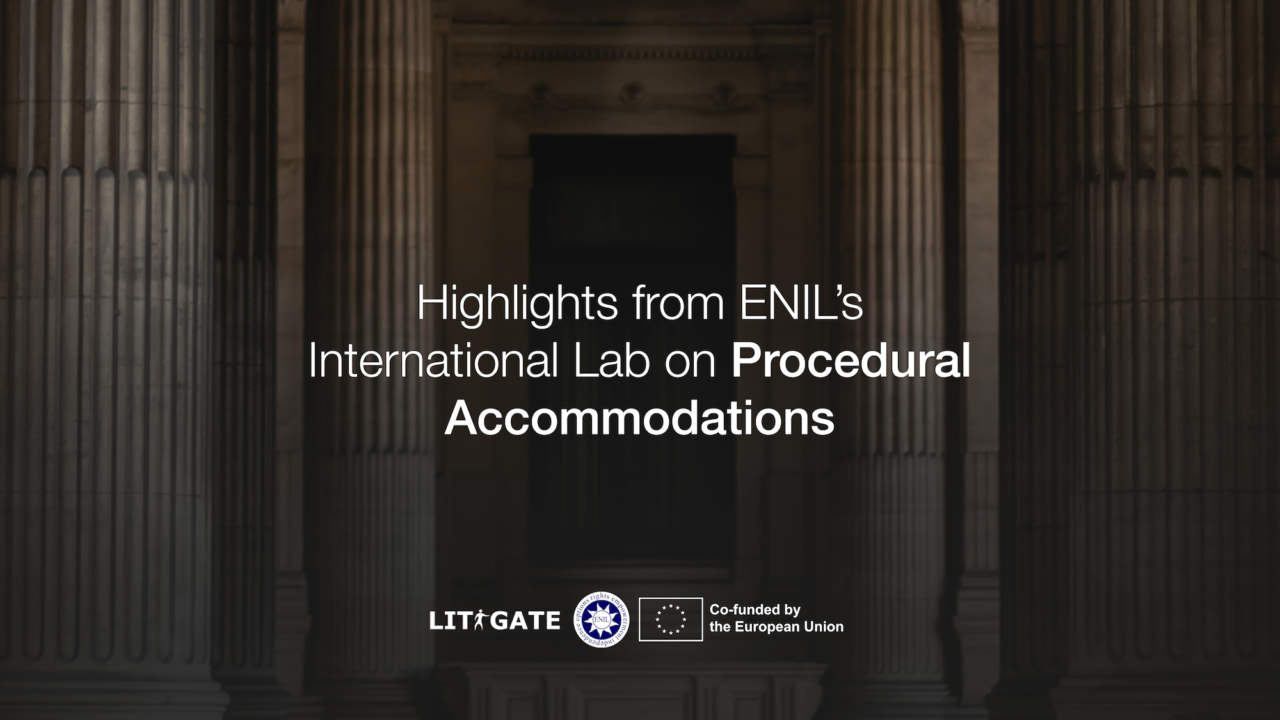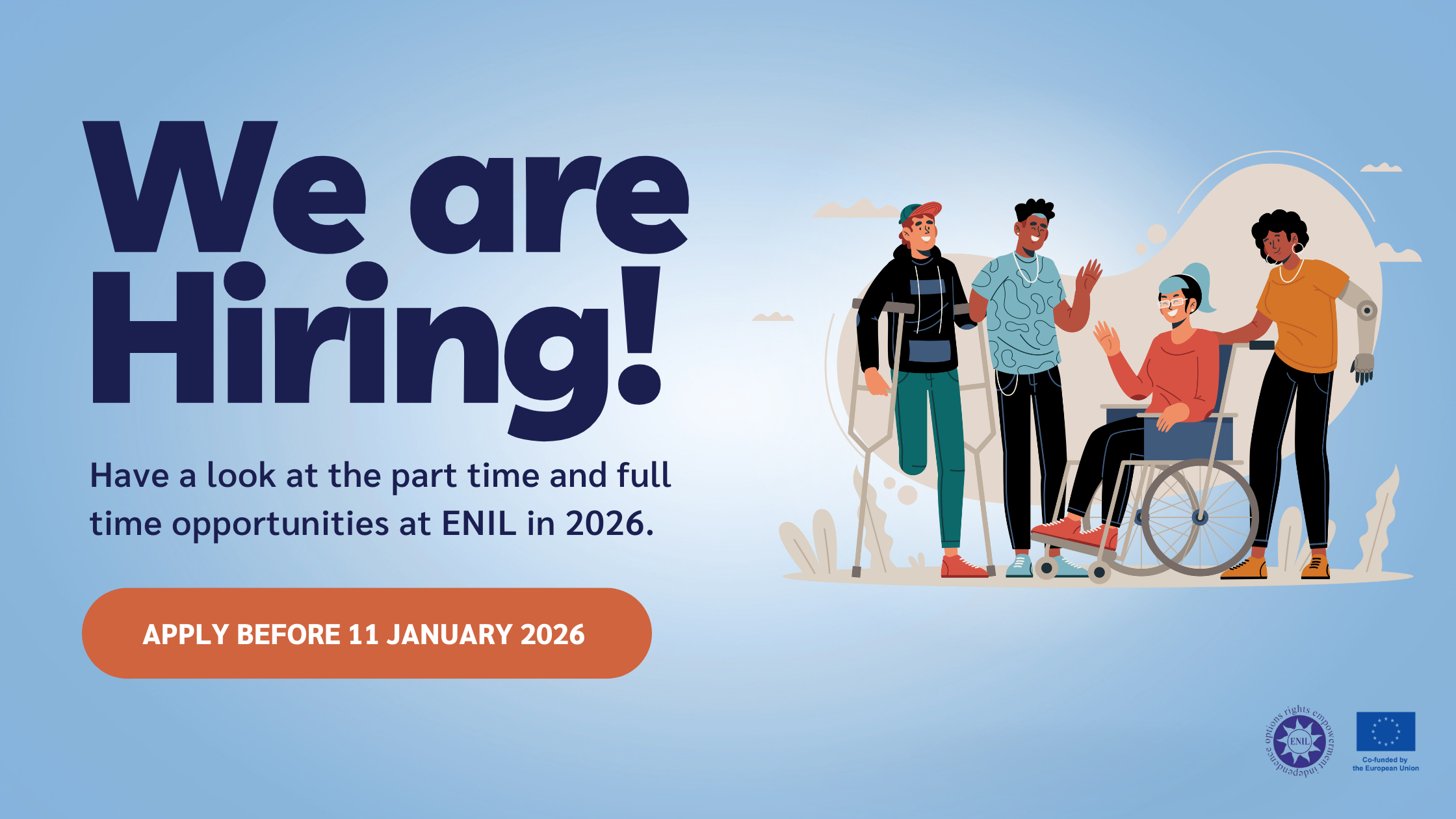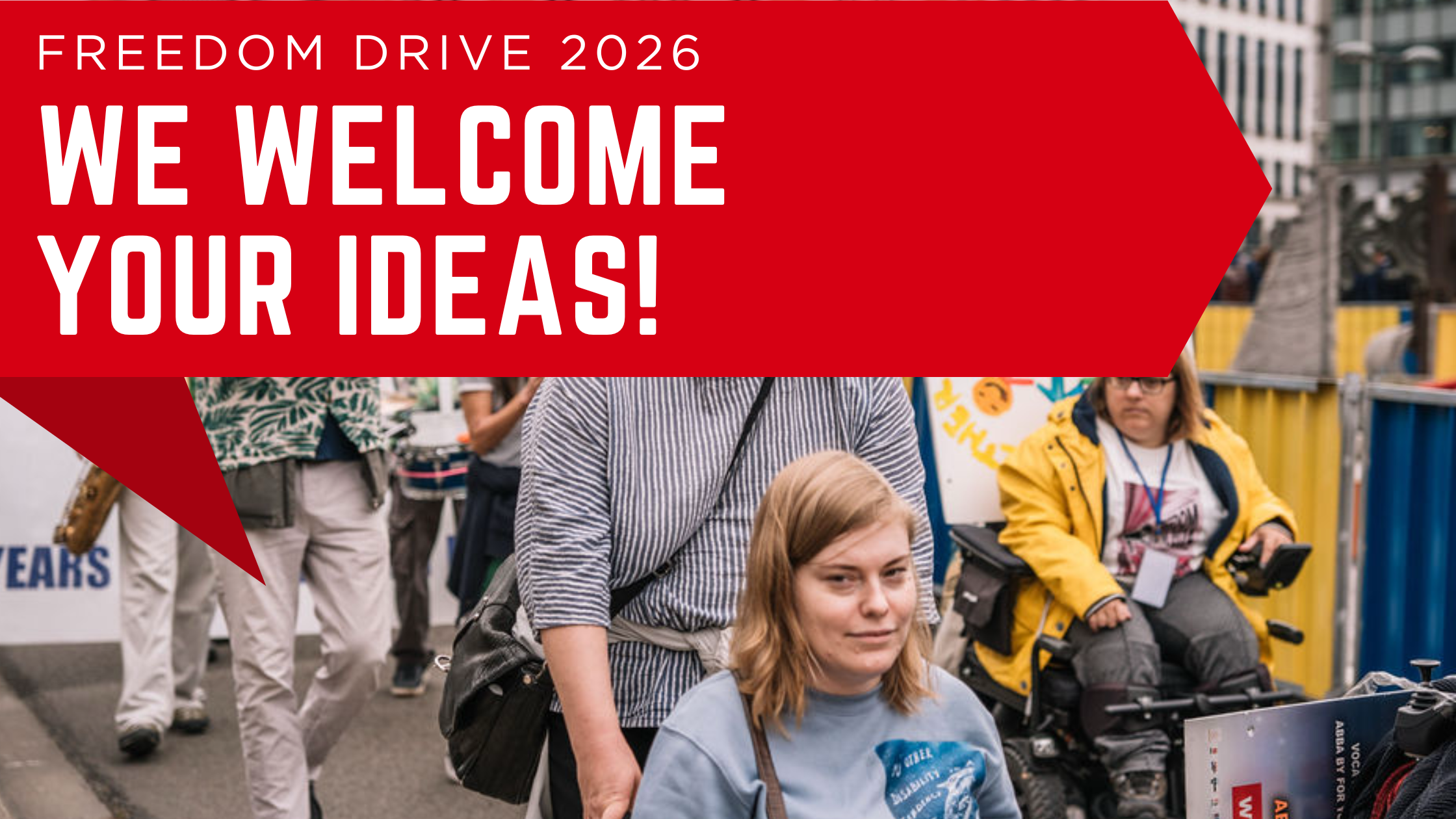On 20 June 2025, ENIL held its second International Lab under the LITI-GATE project, this time tackling one of the most pressing but often invisible barriers in justice systems: the lack of procedural accommodations for people with disabilities. The session, titled “Procedural Accommodations to Ensure Access to Justice”, brought together over 30 participants online to learn, reflect, and exchange practices from across Europe and beyond.
Why This Matters
Despite legal guarantees in international frameworks like the UN CRPD—especially Articles 13 and 9—many people with disabilities still face structural and communication-related obstacles that limit their participation in legal proceedings. This Lab offered real-world models and legal insights to push for change.
Moderated by ENIL’s Project Coordinator Adela Santos, the Lab featured four expert-led presentations exploring legal, operational, and technological aspects of procedural accommodations.
Key Highlights from the Lab
Registered Intermediaries in Northern Ireland
Jenny Humphreys provided a powerful look into the work of Registered Intermediaries (RIs)—neutral communication specialists, often speech and language therapists—who support victims, witnesses, and defendants with communication difficulties. She walked participants through the process of assessing needs, giving recommendations, and actively supporting communication during police interviews and trials. Jenny also highlighted the importance of building sustainable training pipelines, such as the Professional Diploma in Intermediary Studies in Limerick, and the need for round-the-clock availability to ensure access at all stages of proceedings.
Assistive Technologies and Communication Tools
Sabine Lobnig drew from the EU-funded LINK project to show how tools like symbol boards, AAC apps, and simplified legal symbols are transforming child-friendly justice in countries like Bulgaria, Italy, and Portugal. She stressed that barriers are often caused not by disabilities themselves, but by inflexible systems. Sabine introduced the LINK Symbol Set, a communication toolkit co-developed with Global Symbols, and underlined the importance of infrastructural readiness—like sockets and internet—as part of access to justice.
Piloting Communication Facilitators in Bulgaria
Maria Krasteva shared Bulgaria’s promising experience piloting the role of Communication Facilitators (CFs)—professionals who support people with disabilities throughout legal procedures. Her presentation covered the national legal framework, inspired by CRPD principles and local legislation, and the advocacy needed to build judicial awareness and sustainable funding. The Bulgarian model demonstrates how meaningful reforms can emerge through civil society and public sector collaboration.
Legal Perspectives on Intermediaries in the UK
Dr. John Taggart offered a comparative legal lens on the UK’s intermediary systems, contrasting the “two-tier” model of England and Wales with the “unitary” approach in Northern Ireland. He questioned whether intermediaries should be considered independent professionals or tools for upskilling legal actors—and called for harmonised standards across jurisdictions. His presentation highlighted the intersection of CRPD obligations and ECtHR case law, including Stanford v. UK, to argue that intermediaries are not optional, but essential for fair trials.
Participation and Feedback
Participants included legal professionals, DPOs, researchers, and accessibility experts from over 10 countries. The interactive Q&A segments sparked lively discussions on implementation challenges, cross-border learning, and the legal recognition of these support roles. The feedback received through the post-event survey will guide improvements for future Labs and advocacy work.
What’s Next?
This Lab reaffirmed that procedural accommodations are both a legal right and a matter of justice. From Ireland’s intermediary schemes to Bulgaria’s communication facilitators and the assistive technologies of the LINK project, the message was clear: we need systems that adapt to people—not the other way around.
ENIL and its partners will continue advocating for harmonised European standards and accessible legal systems for all.



